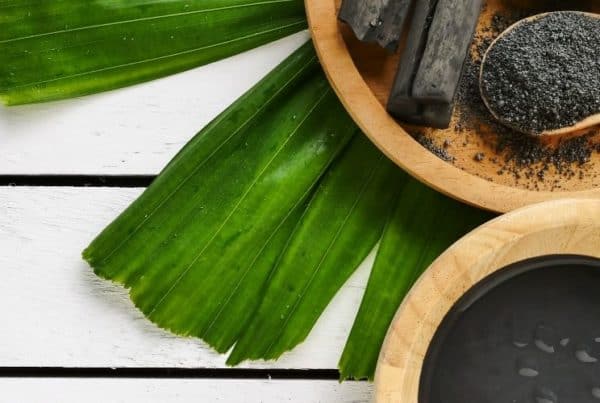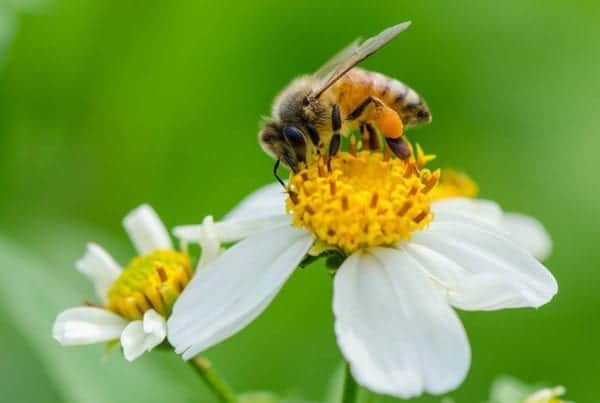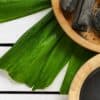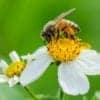Sunday was hunt day and this meant it was time to experience traditional food in all its primal glory. We were picked up by Tim, Kama, Eli and a couple of the Yolngu ladies and their adorable grandchildren. We visited Kathy and Collin Guthadjaka who run a remote Christian School in Gawa up the top end of Elcho Island.
Kathy and Collin are the most amazing people I have ever met. They started the school 25 years ago and literally camped on the beach without a tent and had no proper shelter for nearly two years. Their strength, resilience and determination has paid off with a thriving school that is deeply connected with their homeland and God.
We had a look at their small but thriving market garden as Kathy continues to find ways to better both her and her family’s health. We talked about their dream of building a large garden where the Yolngu people could have their own space of soil to work with so they could not only produce nutritious food but also maintain a strong relationship with their land and reap the mental, emotional, physical and spiritual benefits of that connection.
Collin took us out to a plot he would like to use for the large garden and showed us where the water table came up to based on the Paperbark trees lining the bush. Their biggest problem is a lack of funding for fencing and materials to keep the wallabies out but they trust that with more awareness and support it will be made possible in the near future.
We went back to Kathy and Collin’s place and sat under the shade of a tree eating a lunch made up of wild caught Jew fish and veggies as they told us about the history of the place and more of their amazing journey. This is Kathy and Collin’s homeland and we were so thankful they let us hunt on it. So when the tide went down in the afternoon we all went out and hunted for crayfish and oysters.
The Yolngu people have such a rich culture that is immersed in a wealth of knowledge in traditional foods and healing. They hunt seasonally and we learned that a particular type of bush called the Turkey bush flowers when its oyster season. We were lucky the Turkey bush was out in all its purple glory thank goodness!
I have never seen so many oysters and never felt so in-capable in all my life. The two Helens we dubbed as the oyster queens because they were so fast at cracking them open. I managed to smash three open on the rocks and made sure everyone knew about it. Helen told me they have been coming here all their life and whenever anyone is sick back in Galiwinku they often come up here to hunt and bring back good nutritious food for healing.
The problem is that the western diet has demonised fats and the Yolngu followed along without question. They started to disconnect with their natural food source (which their genetic make up is naturally primed for) and started using things completely foreign to their biochemistry such as low fat foods that are high in simple carbohydrates. Soon there was a market and taste for it and now it has completely gotten out of control. People walk off the plane with a family size meal of Hungry Jacks for the family, everyone walks out of the shop with coke and the takeaway store is the social hub for the town.
Despite the whirlpool that western food influence has created, the Yolngu people are still reaching into their traditional relationship with food and we just need to empower them to take it back as their primary source of food for nutritional health and wellness. After all, research is showing they had it right all along and it didn’t need academic knowledge back then to confirm it.
Once we had our fill of oysters and stored enough to last a lifetime, we were invited to go and see how to cook turtle. Turtle is a main staple on Elcho Island and unfortunately due to the cane toad population the goannas have all died on the island from ingesting them. As a result, there are no goannas to keep the turtle egg numbers down so turtle populations are thru the roof.
Witiyana Marika (one of the band members of Yothu Yindi) said it’s not necessarily bad that there is an over population of turtle as they have plenty of turtle to feed the children. They just miss hunting goanna! A lot of the children in Gawa looked so healthy and I realised this is because they have a real, tangible and healthy relationship with food based on the principle that they have to go hunting to find it. It’s not straight of the shelf its straight from their land and that makes all the difference.
It was another stunning sunset over the beach and we went down to the campfire, which was shielded by a boisterous bunch of lovely Yolngu men. One of the men there was known as the ‘turtle man’. He was casually putting in turtle offal and intestine into the heated turtle shell with coal and bush herbs. The men then dragged the turtle onto the fire and allowed the ‘turtle shell oven’ to cook it well. They then cut the bottom of the turtle open and scooped out some turtle soup in a half cut coke bottle and shared it with us all. I told them I was glad they replaced the Balanda’s (European person) drink with Yolngu’s nutritious drink and they laughed in agreement.
The turtle man told me he has been hunting turtle his whole life and the skills have been passed down from generation to generation. They see turtle as one of the most nutritious and tasty foods possible and he is completely right. The fat, sea salt, gelatin, offal, meat cuts and blood are all essential for connective tissue growth, repair, immune health and nervous system support. It really is nature’s superfood for the Yolngu people.
I told him he could be on Masterchef if he could make it look more visually appealing and he said that if Yolngu had a Masterchef series he would have won anyway because it already looks and tastes great…..I’m still working on changing my western mindset about that very confident opinion.
After we had our fill of gourmet turtle soup and intestine, we said our goodbyes and headed home. As we drove back I was trying to process all the things I had learned that day and started to comprehend the bigger picture. The traditional food requires a great deal of effort to obtain, but this was the key to its health benefits. It was the process not just the end product. The great lengths, the striving, the disappointment and the endurance they had to experience, to suffer just a little and in return were nourished physically, mentally, psychologically and spiritually from that process.
The more they endured the more they connected with the land and with each other, it is such a primal and grounding experience. To engage in a way that I can only just begin to grasp. It goes far deeper than nutrition, it touches every aspect of their life in such an organic and tangible way.
My next blog post will be about the health journey the ladies have been on. There have been some amazing results because the body is designed to win and it’s so exciting the ladies are experiencing this for themselves! So stay tuned and follow us for updates on Facebook and Instagram – @livingvalley and @jess.gaunt


















